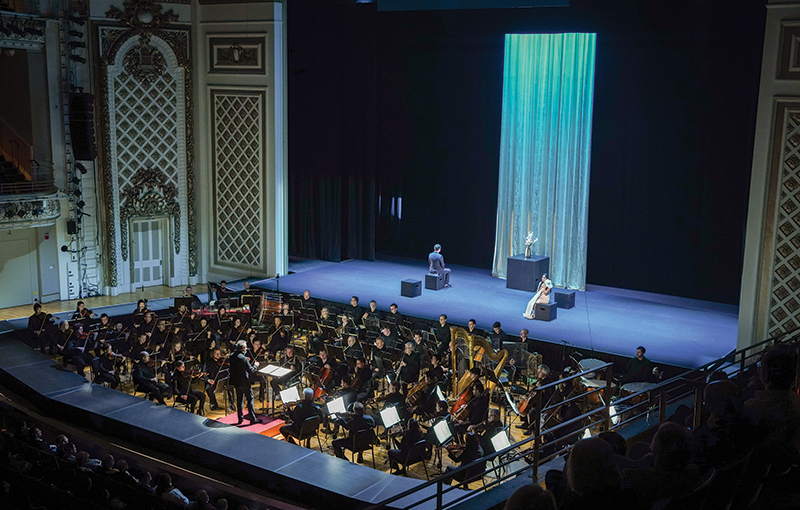The Sound of the Orchestra
by Ken Smith
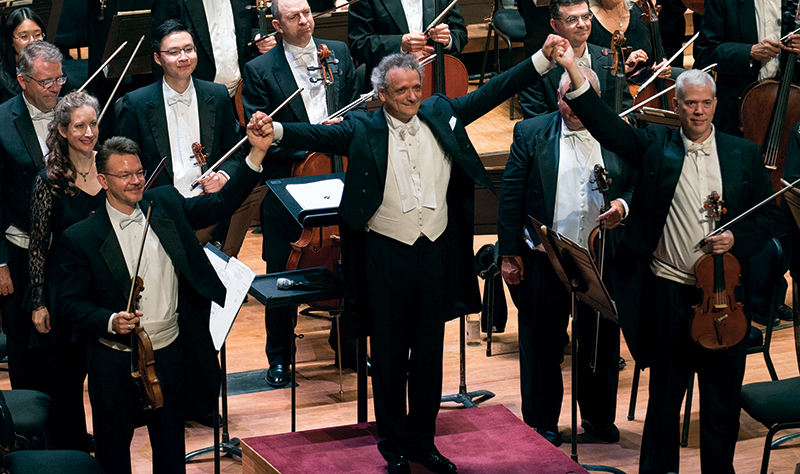
With Louis Langrée’s tenure as Music Director drawing to a close, audiences and musicians alike have pondered the past decade of life at the Cincinnati Symphony Orchestra. One of the most vivid changes, many agree, is still evident even when Langrée is nowhere near the podium. Apart from the world premieres and partnerships with other creative artists, a particularly notable component of Langrée’s legacy at the CSO has been the current sound of the Orchestra itself.
Former concertmaster Tim Lees—hired by former music director Paavo Järvi and continuing with Langrée for more than half his tenure—literally heard those changes develop from the front lines. “Paavo had a pretty vivid idea of what he wanted, but he was super demanding and ruled with an iron fist,” says Lees. “Louis came in and immediately talked about sound and color.”
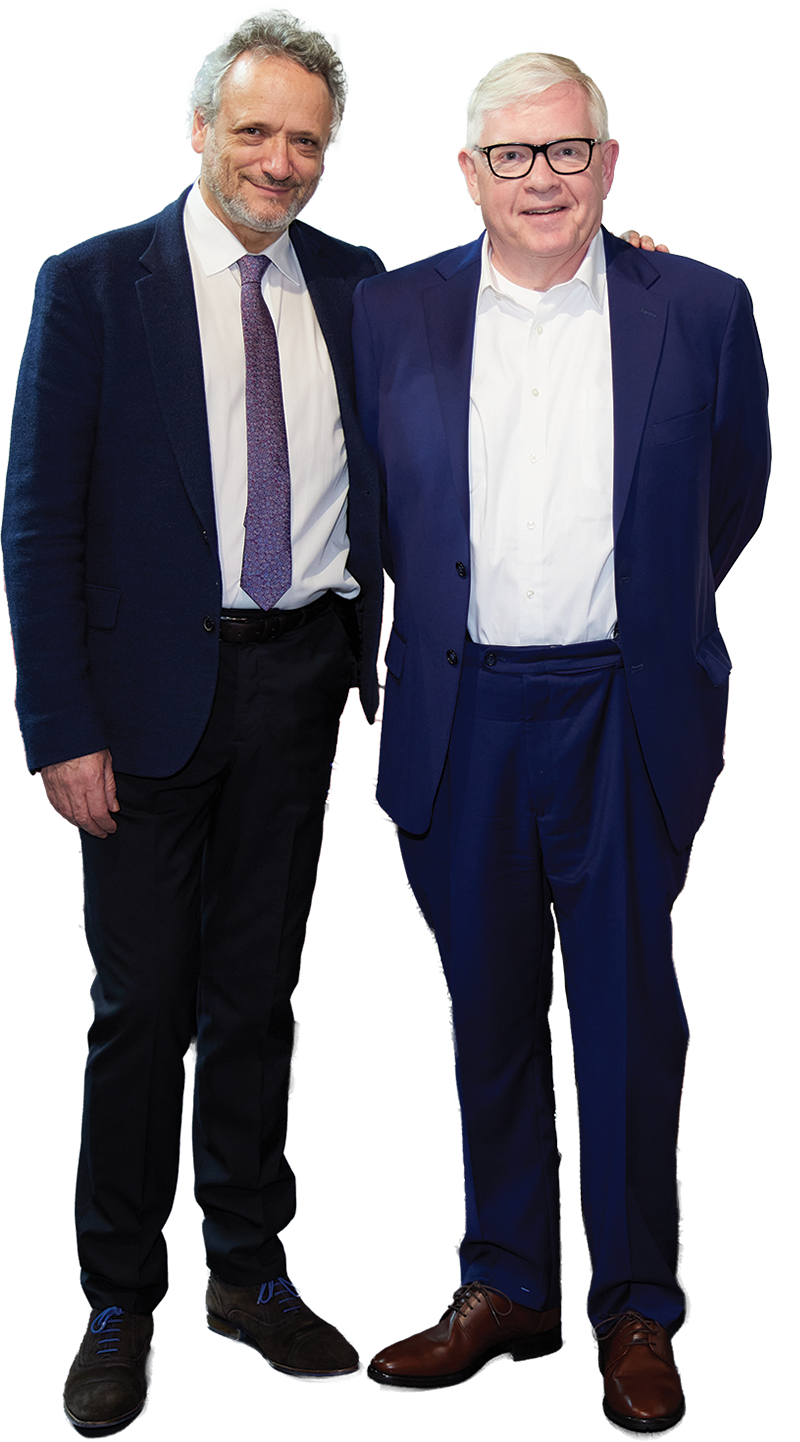
CSO President & CEO Jonathan Martin puts it even more succinctly. “Paavo had a very muscular approach,” he says. “Louis uses pastels.”
For Martin, the change in musical values has been expressed most vividly through dynamics. “It’s much more important for an orchestra to play softly than it is to play loudly, and Louis and the Orchestra have spent an inordinate amount of time perfecting that,” he says. “You simply have more emotional impact with a whisper.”
Langrée doesn’t exactly disagree, but his ears have been focused on a bigger picture. Midway through putting his stamp on the CSO sound, the Orchestra’s home went through a drastic change: a 16-month, $143 million renovation that greatly reconfigured the stage and reduced audience capacity. “The new Music Hall brought a new size, a new acoustic, a new range of color and dynamic possibilities, a whole new volume of sound,” Langrée says. “Before, you had to actually project, to give each attack an extra kick. Suddenly, we had a smaller stage, with risers like an amphitheater to help carry the sound. One brass player told me that, since he doesn’t have to push so hard anymore, he can now focus on the subtleties.”
The new Music Hall required not just a new collective approach from the Orchestra but also a different type of musician coming in. “From the beginning, Louis had this—not respect, exactly, more of a reliance—on individual musicians,” says Lees. “He’d never direct people to play a certain way. Paavo would come in and say, ‘This is the way we’re doing it,’ and he’d get great results. Louis would let the players take charge.”
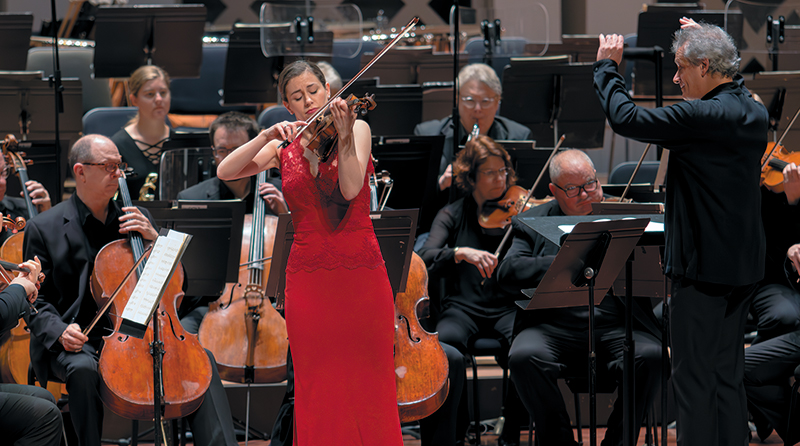
But after the Music Hall renovation, Langrée doubled down in looking for musicians with a collaborative mindset. Stefani Matsuo, who moved through the ranks from second-violin section player to become the CSO’s current concertmaster (replacing Lees when he left the position in 2019), notes the differences in her auditions. “On a basic level, the required repertory is different for a title chair audition than it is for a section player,” she says. “But also, the playing quality they were looking for was quite different. The second time around, there was a lot more room to show my interpretation, rather than just blending into a section.”
Part of that growing focus on individualism came from the sheer breadth of the Orchestra’s repertory. Langrée may have come to the CSO with a reputation for core classics—being music director of Lincoln Center’s now-defunct Mostly Mozart Festival certainly helped in that regard—but he quickly revealed his inclinations to explore lesser-known works and champion living composers. “Louis is quite open and fearless in the projects he’s willing to tackle,” says Matsuo. “One week we’re playing completely standard pieces and the next it’s all new music with the composer standing in front of us making changes to the piece in rehearsal. You need to be as well-rounded as possible, and always on your toes.”
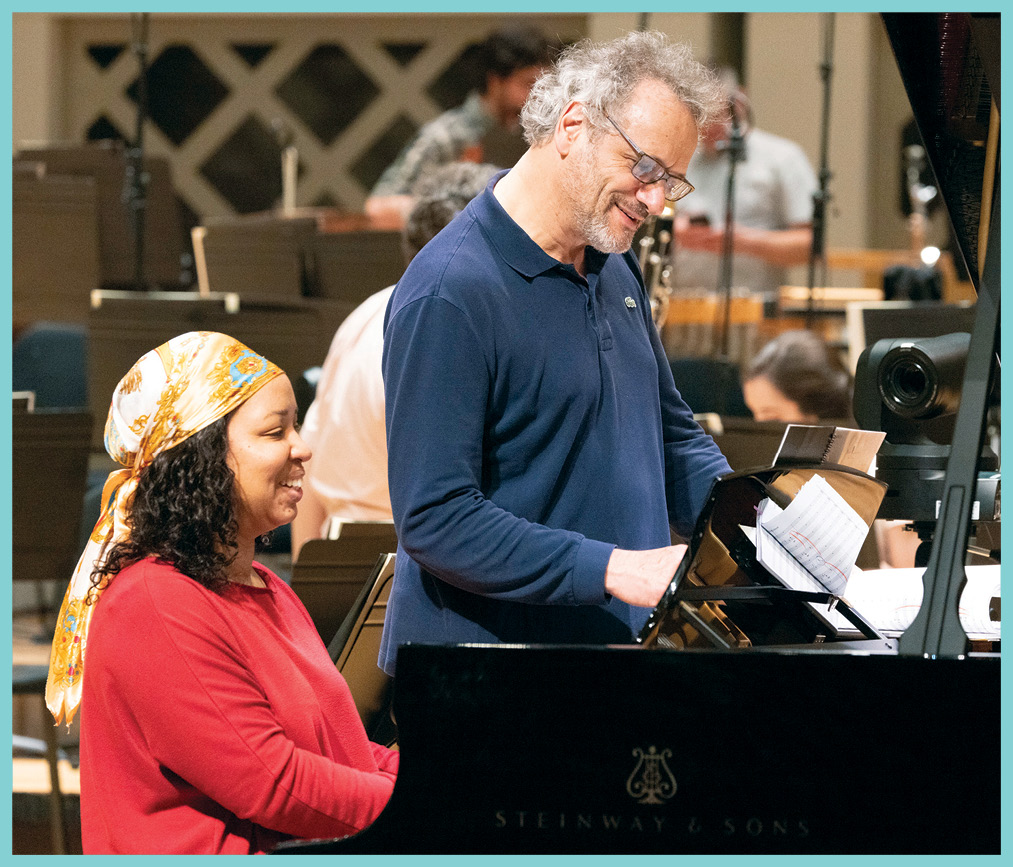
Langrée’s continual search for distinct musical personalities (“we don’t want machines,” he says) might seem at odds with the CSO’s policy of blind auditions, where musicians sit behind a curtain with no verbal interaction with the listening panel. But those challenges have simply made Langrée’s process more intense, his questions more pointed.
“Louis has always thought deeply about the people he was hiring,” Lees adds. “In orchestra auditions, the music director always turns up at the end, but sometimes much earlier. Louis would usually come midway and has been particularly focused on the flexibility of each player. He looks not just for great technicians but for the people who would contribute the most to the fabric of the entire Orchestra. And he’s always very specific. He wants to see everything someone can do in 20 minutes.” [See sidebar for what Langrée looks for in an audition.]
“If you want to make a list of Louis’ accomplishments, right at the top is that he’s hired more than a third of the musicians on this stage,” Martin maintains. “I’ve been thinking a lot in the past few years about what sets Louis apart, and I think it comes down to integrity. There’s really no difference between what he brings to the podium and how he lives his life. There’s the same core integrity whether he’s dealing with the repertory, or his relationships with the community or his musicians on the stage. And he brings all of that core integrity directly into his hiring decisions.
“So really, if you want to talk about Louis’ legacy, just take a look around the stage,” Martin continues. “That’s another 50-year legacy
